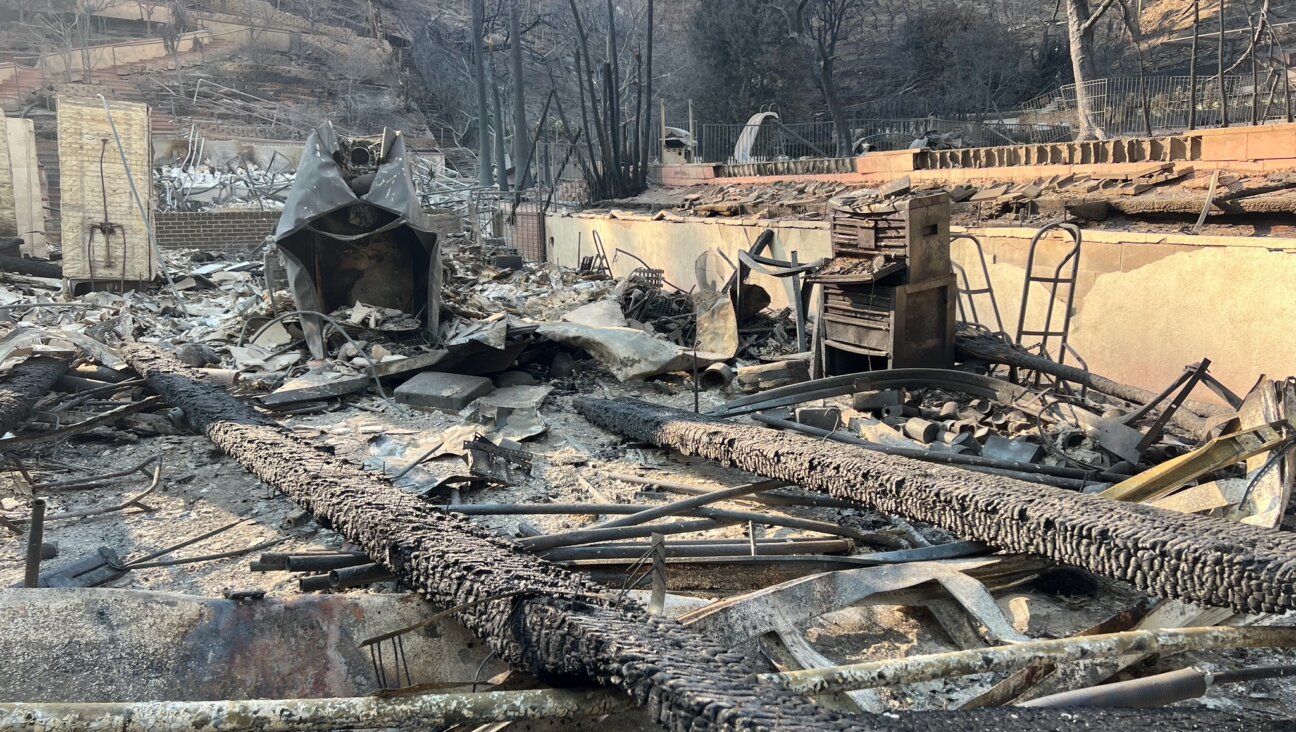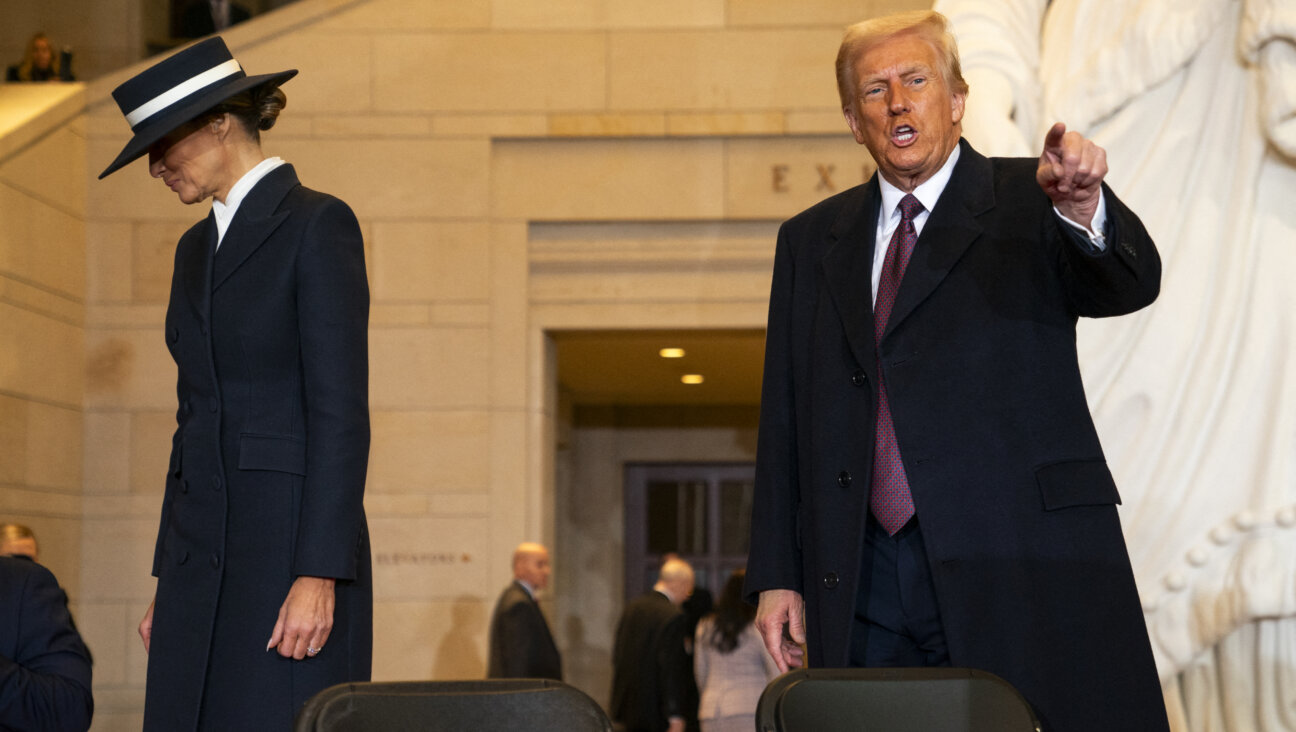Making the broken whole again this Rosh Hashanah

A Jewish wedding Image by iStock
I will never forget reading, some years ago, a moving story of a group of Holocaust survivors who were members of a synagogue in New Jersey. Prior to the High Holidays, they decided that they wanted to make a unique contribution to the congregation. They took the yellow stars of David which they still possessed and sewed them together to make a Torah cover for the New Year. They transformed a sign of humiliation into a symbol of honor — as they said, “We want to take the brokenness of life and build something whole, as best as we can, in our new free country.”
I think of an elderly man I once visited in the hospital. When I walked into his room, he was teaching his young grandson the Hebrew letters of the aleph bet. He later explained to me that he didn’t want his grandchild’s remembrance of him to be that of a “broken old man” but rather of a vibrant grandfather teaching the young man a lesson in the Jewish tradition. He, too, was trying to make whole that which was broken.
Kris Reece, in her book entitled Build a Beautiful Life Out of Broken Pieces, reflects on her personal experience of fashioning something meaningful from the painful fragments of life. “Even when circumstances are out of your control,” she remarks, “the way you think is completely within your power to change.” In that change in perception, Reece finds a new strength in rebuilding her life from her personal trauma and inspiring others to do the same.
Kintsugi, literally translated as “golden joinery,” is a traditional Japanese art form of repairing broken pottery with gold, silver, or platinum rejoining the pieces of ceramic. Its origins in the Japanese philosophy of wabi-sabi which calls for seeing beauty in the flawed or imperfect, Kintsugi emphasizes the unique fractures and breaks in a shattered bowl or vase. The broken, now whole, is seen as more beautiful than before—its cracks, elegantly rejoined, a testament to its unique history.
In many Jewish communities, we have seen a recent custom adopted by married couples in which they take the broken pieces of glass from the wedding ceremony and place them into a mezuzah for the doorpost of their home. The glass is broken at the end of the wedding to commemorate the destruction of the Holy Temples and serves as a reminder of the devastating moments we experience in life. In joining these broken pieces together in the mezuzah, the couples acknowledge the challenging times they will face in life, and the strength they must bring one another to weather future storms.
During the challenging Covid-19 crisis, people saw their lives shattered as the pandemic mercilessly struck their loved ones. I admire the many people who tried to help make those lives whole again: The rabbis who found creative ways to connect with those hurting so that they did not feel further isolation — computer screens becoming platforms for public services, funerals and weddings, while iPhones used to FaceTime patients in health related settings. The chaplains who were able to enter facilities to bring strength and support to the vulnerable who anxiously awaited their arrival. The heath care professionals and so many other essential workers who physically endangered their own lives to serve the many who greatly depended on them. Together, healthcare workers, chaplains and countless others worked tirelessly to bring some form of wholeness to the many feeling so broken.
Elie Wiesel, of blessed memory, once said that we begin life when we are born, but there are times in life when we must learn to begin again. Rabbi Charles Klein, spiritual leader of Merrick Jewish Center, spoke to me about PTSG, Post Traumatic Stress Growth, where people who face debilitating conditions are determined to build again.
Let us now begin the process of that post-traumatic stress growth.
As we enter Rosh Hashanah, I now understand why the Israelites, as they traveled to the Promised Land, carried both the whole and fragmented pieces of the Decalogue Tablets. It was a lesson to all that, in this journey of life, we must try to find wholeness in the midst of the brokenness.
Rabbi Joseph Potasnik is the Executive Vice President of the New York Board of Rabbis.
A message from our Publisher & CEO Rachel Fishman Feddersen

I hope you appreciated this article. Before you go, I’d like to ask you to please support the Forward’s award-winning, nonprofit journalism so that we can be prepared for whatever news 2025 brings.
At a time when other newsrooms are closing or cutting back, the Forward has removed its paywall and invested additional resources to report on the ground from Israel and around the U.S. on the impact of the war, rising antisemitism and polarized discourse.
Readers like you make it all possible. Support our work by becoming a Forward Member and connect with our journalism and your community.
— Rachel Fishman Feddersen, Publisher and CEO






















